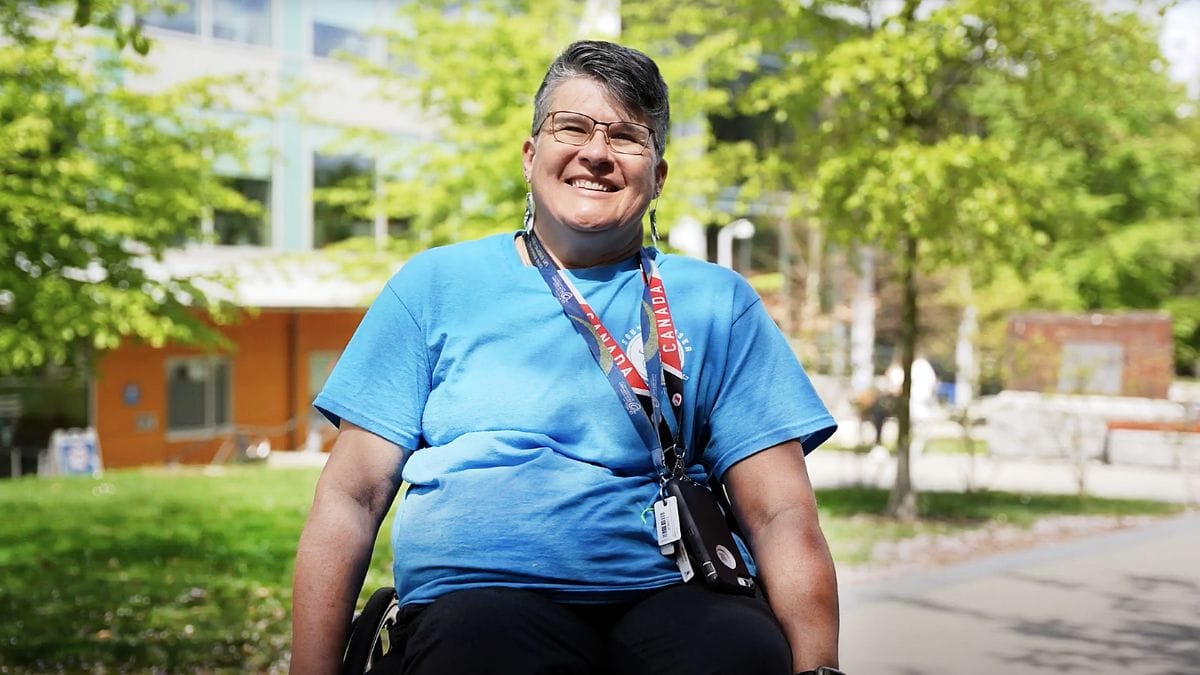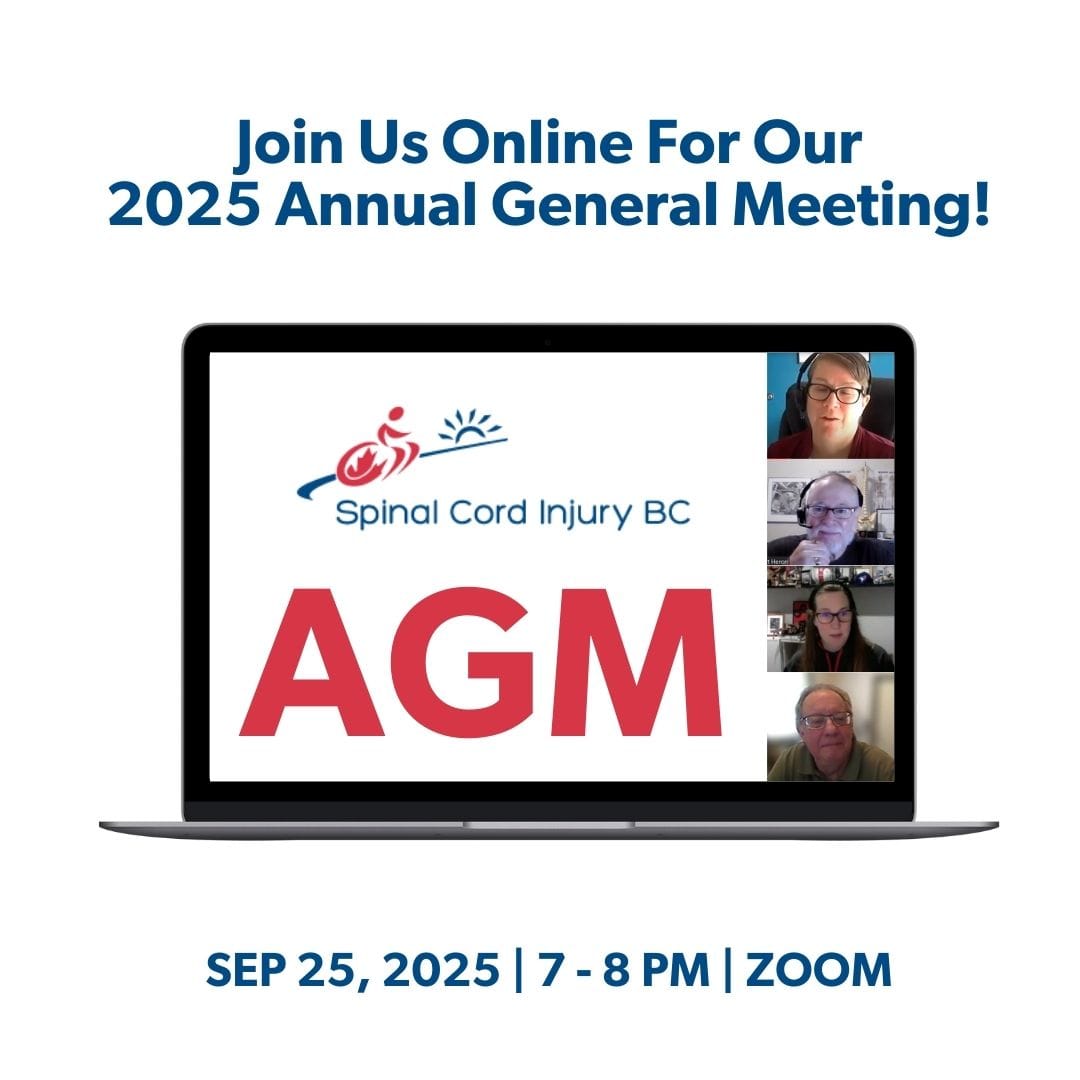
Living with SCI and similar physical disabilities is expensive and brings some unique challenges to making a steady, liveable income. This spring, when the provincial government asked for input on a future poverty reduction strategy, our SCI BC Peers made their voices heard.
The BC Government has been working towards the creation and implementation of a poverty reduction strategy, which has included extensive consultation with the public. “Poverty affects everyone – seniors and children, families and individuals. It affects those who don’t work and those who do. Its impact can be felt in our communities and throughout our province.
B.C. has the second highest rate of poverty in Canada and the B.C. Government is taking action to address this.”
In February and March of 2018, SCI BC held in-person and online discussions with peer members across the province and used an online survey to collect input from their perspectives living with spinal cord injuries (SCI) and similar disabilities to inform the development of a BC poverty reduction strategy.
Over 15,000 people live with a spinal cord injury (SCI) in BC, and SCI BC felt it was incredibly important to elevate these voices in this province-wide discussion on how mitigate poverty across the province. Individuals with SCI and related disabilities have a variety of extra expenses, including but not limited to accessible housing and transportation, daily living, mobility, social, and health.
Heather Lamb, Information Resource Specialist on SCI BC’s Infoline, organized the questions and results of the feedback sessions, had lots to say about the importance of this work within BC.
The results were summarized in a report to the Province of BC through SPARC BC, the organization that facilitated regional consultations around the province.
Here’s a summary of SCI BC’s Poverty Reduction Consultations:
Housing
- PWD is very low and it is nearly impossible to rent anything, much less wheelchair accessible, for $375/month
- HAFI rules mean many homeowners do not qualify because the house value limits haven’t kept up with property value increases
- Lack of subsidized and accessible housing
- Taking 80% of a person’s income for a care facility means nothing is left
- No ability to relocate to another part of the province because no accessible subsidized housing available
- Low rent apartments usually not accessible, have to pay rent in buildings one can’t afford to get an accessible unit
- Need to re-qualify for things like CSIL, means people can’t move to a new health region for cheaper/more accessible housing without risking their CSIL hours
- Forced to live in Vancouver for medical services but can’t afford housing/parking
What Could Address Some of These Issues?
- Raise PWD rates and stop clawing back CPPd
- More subsidized and accessible housing, with choices in unit size and location
- Portable rent subsidy for accessible housing
- Support co-ops to maintain or expand current subsidies to members
- Fast track people with disabilities for housing
- Have long term care facility options for younger people with disabilities so they can live together, rather than with seniors years older
- Make all new buildings, especially housing, accessible
Extra Daily & Medical Costs
- Disproportionate cost of specialized goods and services (including costs to simply urinate) necessary for people with SCI compared to the “regular” market
- Lack of coverage for medical equipment and supplies
- Cost of care aides not fully covered and services such as housework are not included; people don’t get what they need or pay out of pocket
- Coverage for items to ensure health and prevent disability progression are not covered (eg. medical equipment, recreational equipment, gym membership, nutritious food, physio, occupational therapy, massage, chiropractor, etc.)
- Reuse of medical supplies (eg. catheters) because some can’t afford to buy more
- Choosing of food vs. medical supplies
- Cost of extended health plans for people with disabilities are prohibitive
- Different costs between “regular” products and products for people with disabilities (eg. “regular” skis vs. a sit ski or a typical bicycle vs. a handcycle)
- Government help only as last resort, people spend savings first. “Have to be financially screwed” before government will help
- Government expectation family/friends will help with extra expenses related to disability but many cannot financially assist or people don’t have family
- No money for extras after paying for all the expenses related to disability
- One may need more homecare hours, especially overnight, due to high-level disability but can’t get more CSIL coverage and has no way to pay extra while on PWD
What Could Address Some of These Issues?
- More medication coverage and lower deductibles
- Tax reductions/incentives to cover extra costs of disability, including refundable ones so people with low incomes can benefit
- More CSIL hours for people with high-level disabilities and more money per hour
- Cover medical travel
- Relax rules on what is covered by the Ministry for equipment and supplies
- Cover catheters and incontinence and bowel supplies for everyone who needs them, not just people on PWD
- Pay for prevention. Paying for higher-quality products may cost less in long run if preventing other health issues (better wheelchairs, recreational equipment)
- Make it easier to transfer CSIL hours from one health authority to another
- Cover dental care for everyone below a certain income (not just people on PWD)
- Cover costs like home maintenance for people with disabilities because, unlike able bodied people, have to contract out even minor repairs
- Provide subsidies for the extra costs people with disabilities have
- Cover home renovations after injury
- Assess people individually for funding of medical equipment and supplies
- Don’t make people re-qualify for help every few years, as SCI is permanent
- Rebates on paying doctors for medical letters/forms for programs
- Individualized funding, lump sum payments based on need per year, so people with disabilities choose their own medical equipment company or provider and choose the equipment or supplies that they know work best for them
- Duplicate programs from other provinces/countries here to better support people with the extra costs of having a disability
Employment
- Limited work options result in lower income and/or use of CPP disability or PWD (means living in poverty)
- Disincentives to work (eg. clawbacks on income, hard to get back on CPPd if job doesn’t work out, loss of benefits by working part time)
- Can’t be on PWD if spouse works means being financially dependent on that person and not having the extended medical coverage people on PWD get
- Disability symptoms (eg. fatigue, pain) change daily, making it difficult to hold down a regular job
- Forced back to work too soon after injury because of cost of not working
What Could Address Some of These Issues?
- Incentives to work (eg. don’t claw back income)
- More employment incentives to hire people with disabilities and educate employers on the many things people with disabilities can do
- Guaranteed annual income
- Don’t force a spouse into poverty/bankruptcy to pay for care needs of spouse
- Offer training or financial assistance after SCI for learning a new profession
- Write off student loans for people with disabilities because working and studying at the same time is very difficult
- A section of WorkBC specific to people with disabilities, as staff don’t understand challenges of helping people with disabilities find work
- Understand not everyone can work with a disability but still need support to not live in poverty
Transportation
- People too poor to afford a vehicle (or can’t drive) rely on HandyDart, especially in winter, which limits options for recreation, shopping, etc.
- Wait lists to see an Occupational Therapist in more remote areas, and can’t afford to travel to Vancouver to see one
- In more remote areas, doctors are located further away, buses are rare, and one may not be able to afford a taxi, if there is even an accessible one
What Could Address Some of These Issues?
- Free transit passes for people with disabilities
- Cheap public transportation needed across the province, not just in the cities
- Free parking for people with disabilities
- Companies like Greyhound and BC Ferries should give the disability rate without a card (eliminate need for doctors to spend time signing for programs)
- Government should cover the cost of a van conversion
- Don’t increase carbon tax for people with disabilities because a vehicle is essential to travel
- Reduce taxi fares for people with disabilities



